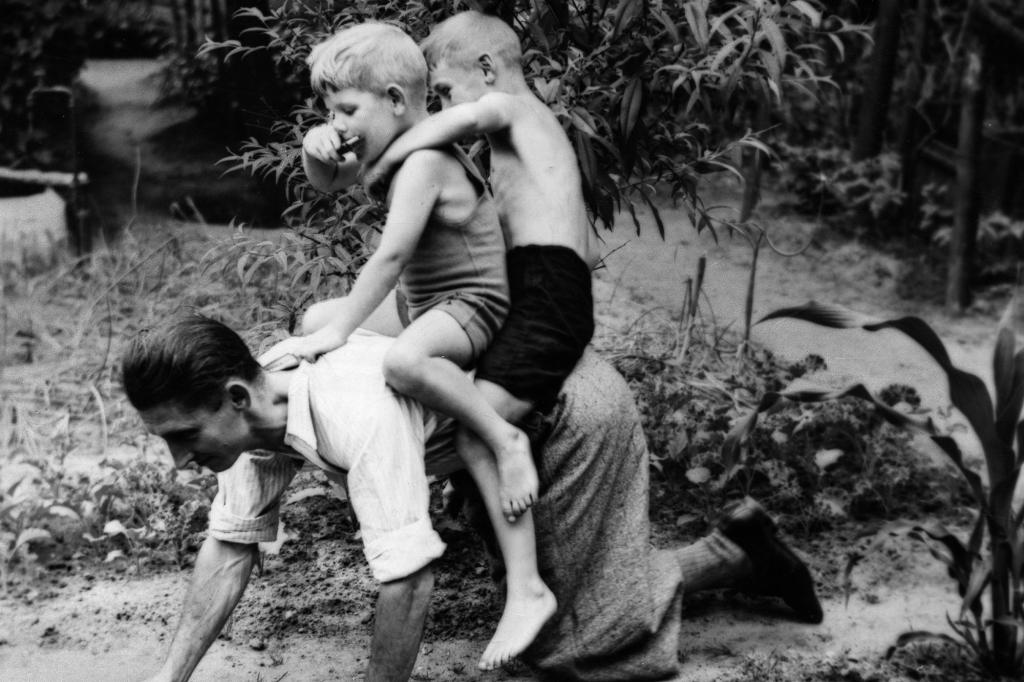What makes a father? Most every living thing has parents, but only a small minority of animals exhibit any degree of paternal care. Almost none approach the amount of male investment in children that characterizes human societies, and some of our closest primate relatives appear to be especially unlike us in this regard.
We will probably never know where this aspect of human uniqueness comes from, or who the first men to think of themselves as fathers were. For the great majority of our history as a species, there was no understanding of reproduction to support anything like what we now call “biological fatherhood.” In fact, only in the 1980s, with the development of gene-based testing, did it become possible to establish paternity with absolute certainty.
But there are common themes in the annals of dads. Across millennia, in the absence of a precise understanding of paternity, men have told stories about what it means to be a father that have supported their claims to power and authority. Our unique human capacity for storytelling underpins the importance of fathers in human families and societies.
And these stories share a key resemblance. As far back as we can go in the historical record, to the earliest law codes and religious texts, fatherhood is presented as a godlike paternal mandate: I know what’s best for you, and if you do as I say and you will be protected and provided for.
But this creates another problem. Men have historically made promises that only gods could keep, defining fatherhood in terms that can never be entirely satisfied — probably in order to elevate themselves above women, whose role in the creation and sustenance of life was vividly clear.
As a result, time and time again, and especially in moments of historical change and upheaval, men have found themselves mired in crises of masculinity and fatherhood, unable to entirely satisfy the role’s expectations and responsibilities. At such moments, men have often tried to reassert the power of fathers by making new versions of the same old promises. This is arguably the oldest story in the history of fatherhood, and it’s very much alive today.
On this point, Bob Dylan can speak for hundreds of generations of fathers. As a young man, he spent years pretending he was estranged from his father, Abe Zimmerman, a hard-working appliance salesman who bought his son virtually everything he asked for. In 1964’s “The Times They Are A-Changin’,” Dylan told mothers and fathers to get out of the way. Yet even as he wrote the songs that defined a generation of protests against “the man,” Dylan found himself craving the traditional model of home and family.
And by the time he was a father of five (later six) himself, he wanted to be “the man” after all. Dylan’s 1973 song “Forever Young” sounds like an anthem but is really a prayer — that all his children’s wishes may yet come true.
At some point every father has wanted the same thing, but none has ever got it. When it comes to parents and children, “forever” is impossible. The nature of parenthood, and fatherhood especially, with its promises to protect and provide, requires us to confront the paradox of boundless love amid finite power. Our wishes for our children may be limitless, but our ability to make those wishes come true is decidedly limited.
Understanding this core theme of the history of fatherhood changed me in two ways. First, it helped me see my father in a new way: as a person. It helped me forgive him for things that were never his fault, and to forgive myself for having internalized unrealistic expectations and images. Second, and at the same time, I have been trying to be a father to my own son on this more human, and I would say humane, scale — one that’s clear about both my vast love for him and the real restrictions on what I can do about it.
There’s a larger point here, too. As we celebrate Father’s Day this year, our shared stories of fatherhood should honor the paradox of fatherhood rather than wish it away. Protection and provision fall often short not as the result of personal failings, but because men have never been gods after all.
If our stories about fatherhood could move away from the unrealistic standards that come down to us from earlier generations, we might find it easier to forgive ourselves and each other when we cannot always meet them. We will find forgiveness for our limitations as men and fathers and sons. In their place, we might find a way to acknowledge and accept the real challenges and the real triumphs of caring for those we love, which are ultimately, always fleeting, yet forever enduring.
This essay is inspired by “Fatherhood: A History of Love and Power” by Augustine Sedgewick. Copyright © 2025 by Augustine Sedgewick with permission by Scribner, a division of Simon & Schuster, Inc.
Read the full article here

















